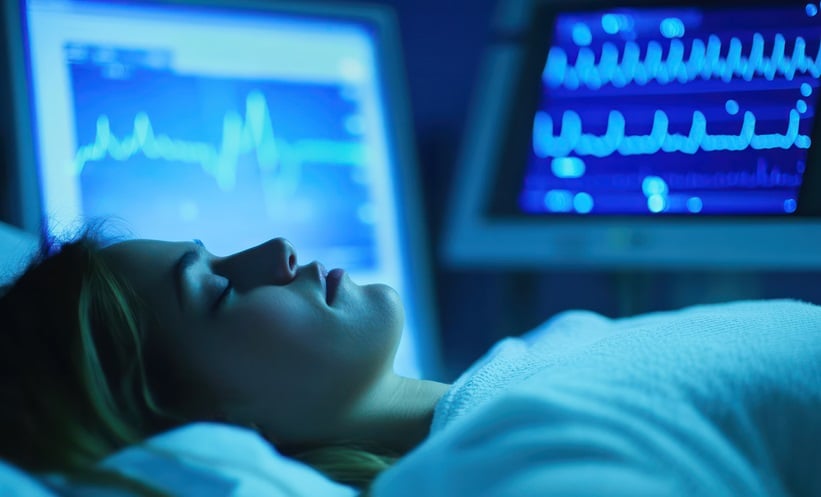VARIABILITY in heart rate during sleep can reveal early warning signs of stroke, depression, and cognitive dysfunction, even in individuals without obvious sleep problems, according to a major new study presented recently at the 11th European Academy of Neurology (EAN) Congress in Helsinki, Finland.
Sleep is increasingly recognised as critical pillar of long-term health, with mounting evidence linking sleep-wake patterns to a wide range of health outcomes. However, traditional sleep metrics, such as sleep stages or total sleep time, may not capture subtle physiological changes that precede serious disease. Researchers from the University Hospital of Bern have now shown that heart rate variability (HRV) during sleep provides insights into the body’s autonomic regulation, and may serve as an early marker for future neurological, psychiatric, and metabolic conditions.
The study analysed data from 4,170 adults, with an average age of 48 years, over a total observation period of 13,217 person-years. Using overnight polysomnography, the researchers measured sleep architecture and 21 HRV parameters as indicators of autonomic nervous system function. Participants were followed for the development of 36 different comorbidities, grouped into eight major disease categories. While traditional sleep measures showed only limited links to future disease, HRV patterns were strongly associated with incident comorbidities. High and complex HRV during sleep was linked to later development of neurological diseases, particularly stroke, while low HRV was common in those who developed depression. Metabolic and endocrine diseases were associated with high HRV, especially with a high very low-frequency component. These associations remained significant after adjusting for age and sex. Notably, some participants with ‘normal’ sleep by conventional standards still showed abnormal HRV patterns, indicating a hidden risk that would not be detected by standard sleep assessments.
These findings highlight the potential of HRV as a powerful early biomarker for a range of serious health conditions. For clinical practice, this research suggests that monitoring HRV during sleep could help identify at-risk individuals before symptoms emerge, opening the door to earlier intervention and prevention strategies for diseases like stroke and Alzheimer’s. The results also point to the future use of wearable technology to track HRV as part of routine health monitoring.
Overall, the study reinforces the importance of sleep as an active and dynamic process essential for healthy brain and body ageing, and suggests that HRV monitoring could become a valuable tool in preventive medicine.
Reference
Filchenko I et al. Sleep and longevity: insights from sleep macroarchitecture and nocturnal heart rate variability. Abstract OPR-059. EAN Congress, 21-24 June, 2025.








